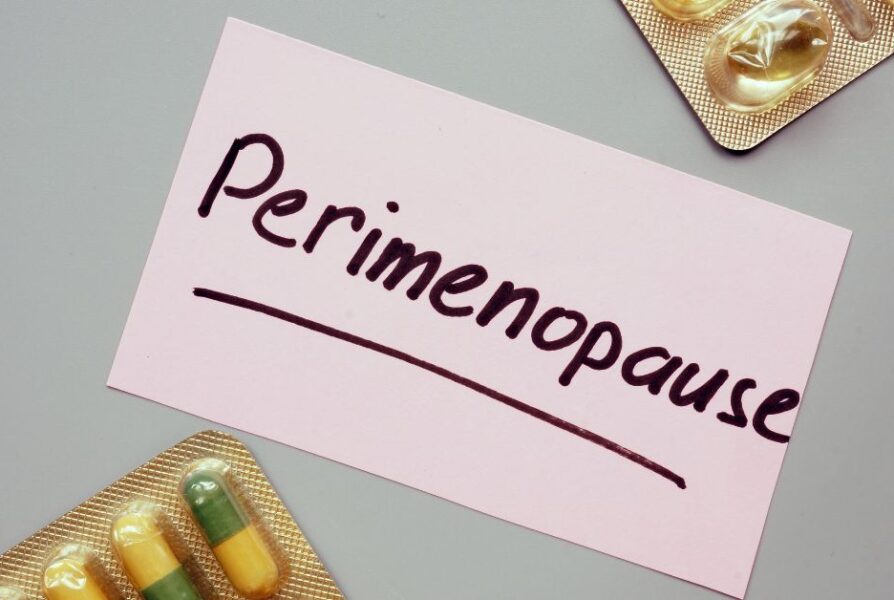Perimenopause, the transitional phase leading up to menopause, is a natural part of ageing that brings about many physical and emotional changes. While most people are familiar with hot flushes and mood swings, one of the lesser-known but significant effects of perimenopause is its impact on cognitive function. Many women experience brain fog, forgetfulness, and difficulty concentrating during this time, making daily life more challenging. It’s important to remember that these changes are a normal part of the perimenopausal journey, and understanding them can help alleviate any anxiety or worry.
These cognitive changes can be frustrating, but understanding why they happen and learning ways to manage them can help. In addition to medical treatments and lifestyle adjustments, some women turn to herbal remedies like passiflora for relief, which can support emotional and cognitive well-being during this period.
How Perimenopause Affects Cognitive Function
Cognitive function refers to mental abilities like memory, focus, problem-solving, and the speed of processing information. During perimenopause, fluctuations in hormone levels—particularly Oestrogen—can affect how well the brain functions. Oestrogen is critical in maintaining brain health and influences memory, attention, and cognitive processing. As Oestrogen levels decline during perimenopause, many women begin to notice subtle yet impactful changes in their ability to think clearly.
Some of the most common cognitive symptoms during perimenopause include:
• Memory lapses: Forgetting simple things like where you placed your keys or what you were about to say.
• Brain fog: A sense of mental cloudiness that makes it hard to focus or think clearly.
• Difficulty concentrating: Trouble maintaining focus, especially during complex or lengthy tasks.
• Slower thinking: Processing information or making decisions may take longer.
• Word-finding difficulties: Struggling to recall common words or names.
The Science Behind Cognitive Changes in Perimenopause
The cognitive changes that occur during perimenopause are mainly due to the fluctuation of Oestrogen, which affects areas of the brain responsible for memory and learning. Estrogen helps to support brain function by promoting communication between neurons and protecting brain cells. As levels drop, the brain’s ability to function efficiently can decline, leading to the cognitive issues many women experience.
Additionally, sleep disturbances, which are common during perimenopause, can worsen cognitive symptoms. Hot flushes and night sweats can make it difficult to get restful sleep, and poor sleep quality directly affects memory and concentration.

Herbal Remedies for Cognitive Support During Perimenopause
While conventional treatments like hormone replacement therapy (HRT) can help with both physical and cognitive symptoms, some women prefer natural alternatives. One such option is herbal treatment, with passiflora (also known as passionflower) being popular.
Passiflora has long been used to promote relaxation, reduce anxiety, and improve sleep quality—key factors that can help ease cognitive symptoms like brain fog and difficulty concentrating. By addressing stress and sleep disturbances, passiflora may indirectly support cognitive function during perimenopause. While scientific studies on its direct impact on cognition are still limited, many women find it helpful in managing the emotional and mental effects of hormonal changes.
Other herbal remedies like ginkgo biloba and black cohosh are also commonly used to support brain function and reduce perimenopausal symptoms. However, it’s important to consult a healthcare practitioner before starting any herbal treatment to ensure it’s safe and appropriate for your situation.
Tips for Managing Cognitive Symptoms
In addition to considering herbal remedies, there are several lifestyle changes that can significantly improve cognitive function during perimenopause. By prioritising sleep, staying physically and mentally active, and eating a brain-healthy diet, you can take proactive steps to enhance your cognitive function and feel more in control of your mental clarity.
1. Prioritise Sleep: Establishing a consistent sleep routine and addressing any issues with insomnia can significantly improve memory and focus.
2. Exercise Regularly: Physical activity boosts blood flow to the brain and supports the production of new brain cells, which can enhance cognitive function.
3. Eat a Brain-Healthy Diet: Incorporate foods rich in antioxidants, omega-3 fatty acids, and other nutrients that support brain health, such as leafy greens, berries, and fatty fish.
4. Manage Stress: Practice stress-relieving techniques like meditation, deep breathing, or yoga, which can help clear your mind and reduce feelings of brain fog.
5. Challenge Your Mind: Engage in mentally stimulating activities like reading, puzzles, or learning new skills to keep your brain active.
6. Stay Socially Active: Maintaining social connections can help support cognitive function by keeping your brain engaged and reducing feelings of isolation.

When to Seek Medical Advice
If cognitive symptoms significantly affect your daily life or cause concern, seeking medical advice is important. While cognitive changes are a normal part of perimenopause, more severe memory or thinking issues may indicate another underlying condition that requires medical attention.
Conclusion: Navigating Cognitive Changes in Perimenopause
Perimenopause is a significant life transition that can affect not only physical health but also mental clarity. The cognitive symptoms many women experience during this time—such as brain fog, forgetfulness, and difficulty concentrating—are mainly due to hormonal fluctuations, particularly declining oestrogen levels. It’s important to remember that these changes are usually temporary and manageable, offering hope for a return to normal cognitive function.
By prioritising sleep, staying physically and mentally active, and considering supportive herbal remedies like passiflora, you can improve cognitive function and feel more in control of your mental clarity during perimenopause. Whether you choose natural treatments, HRT, lifestyle changes, or a combination, understanding and addressing the cognitive effects of perimenopause can help you navigate this transition with confidence and ease.


